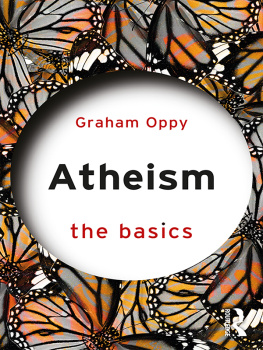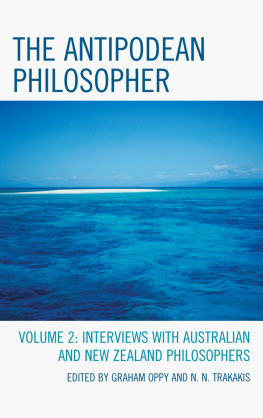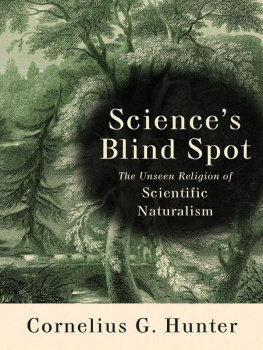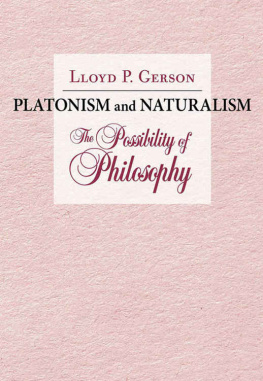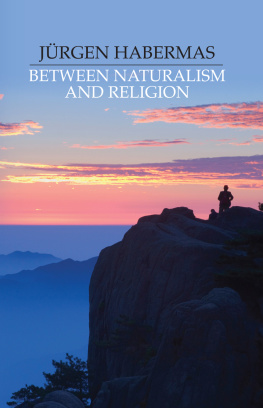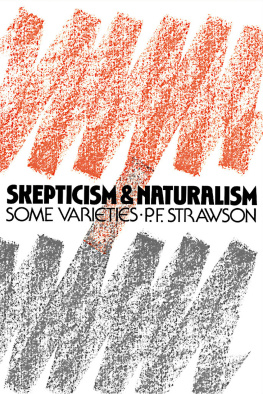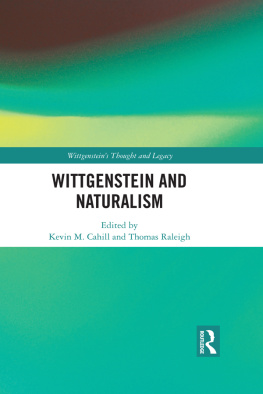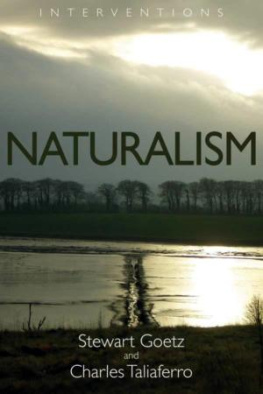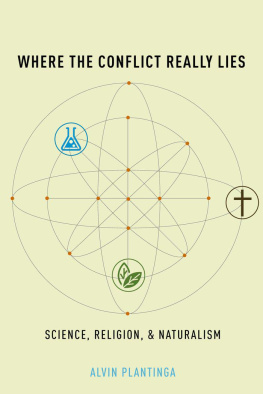Naturalism and Religion
This book guides readers through an investigation of religion from a naturalistic perspective and explores the very meaning of the term religious naturalism. Oppy considers several widely disputed claims: that there cannot be naturalistic religion; that there is nothing in science that poses any problems for naturalism; that there is nothing in religion that poses any serious challenges to naturalism; and that there is a very strong case for thinking that naturalism defeats religion.
Naturalism and Religion: A Contemporary Philosophical Investigation is an ideal introduction for undergraduate and postgraduate students of religious studies and philosophy who want to gain an understanding of the key themes and claims of naturalism from a religious and philosophical perspective.
Graham Oppy is Professor of Philosophy in the School of Philosophical, Historical and International Studies at Monash University, Australia.
Investigating Philosophy of Religion
Series editors: Chad Meister, Bethel College, and Charles Taliaferro, St. Olaf College
This is a series of interfaith texts that philosophically engage with the major world religions in light of central issues they are currently facing. Each work is an original contribution by a leading scholar from that religious tradition and incorporates the latest developments in scholarship in the field. The texts are written for students, scholars, and all those who want a fairly detailed but concise overview of the central issues in contemporary philosophy of religion from the perspective of the major world religions.
Judaism: A Contemporary Philosophical Investigation
Lenn E. Goodman
Buddhism: A Contemporary Philosophical Investigation
David Burton
Islam: A Contemporary Philosophical Investigation
Imran Aijaz
Naturalism and Religion: A Contemporary Philosophical Investigation
Graham Oppy
For more information about this series, please visit:https://www.routledge.com/Investigating-Philosophy-of-Religion/book-series/IPR
Naturalism and Religion
A Contemporary Philosophical Investigation
Graham Oppy

First published 2018
by Routledge
2 Park Square, Milton Park, Abingdon, Oxon OX14 4RN
and by Routledge
711 Third Avenue, New York, NY 10017
Routledge is an imprint of the Taylor & Francis Group, an informa business
2018 Graham Oppy
The right of Graham Oppy to be identified as author of this work has been asserted by him in accordance with sections 77 and 78 of the Copyright, Designs and Patents Act 1988.
All rights reserved. No part of this book may be reprinted or reproduced or utilised in any form or by any electronic, mechanical, or other means, now known or hereafter invented, including photocopying and recording, or in any information storage or retrieval system, without permission in writing from the publishers.
Trademark notice: Product or corporate names may be trademarks or registered trademarks, and are used only for identification and explanation without intent to infringe.
British Library Cataloguing in Publication Data
A catalogue record for this book is available from the British Library
Library of Congress Cataloging in Publication Data
A catalog record has been requested for this book
ISBN: 978-0-8153-5464-2 (hbk)
ISBN: 978-0-8153-5466-6 (pbk)
ISBN: 978-0-429-48786-6 (ebk)
Chad Meister and Charles Taliaferro wrote to me in early August, 2011, to invite me to contribute a book on naturalism and religion to their book series Investigating Philosophy of Religion. Initially, I agreed to deliver a finalised version of the book to them by the end of July, 2015. However, at that point, I only had drafts for Chapter 4 and the first half of Chapter 5, and no prospects of making any immediate further progress. Fortunately, I had sabbatical scheduled for the second half of 2017, and I was able to complete the book during that time. I am very grateful to Chad and Charles for inviting me to write this book, and for their forbearance during the excessively long time that it took me to actually get it done; I hope that they are pleased enough with the outcome.
I am grateful to Monash University for the sabbatical in the second half of 2013, during which I wrote Chapter 4 and the first half of Chapter 5, and for the sabbatical in the second half of 2017, during which I completed the remaining chapters. This gratitude extends to all of the staff and students at Monash who have supported me throughout the years during which I was working on this book. I must mention, in particular, the honours and graduate students I have supervised during this time with whom I have discussed themes in this book, including: Lok Chi Chan, Ben Kemmann, Paul Litchfield, Shang Lu, Jane McDonnell, James Molesworth, Jenny Munt, Paul Podosky, Shaff Rahman, Maxwell Reiss, Mark Saward, Dwayne Schulz, and Brendan Vize.
As always, I owe a special debt to family, friends, and the organisations to which I belong that take me away from academic pursuits. Big thanks to everyone at the Glen Waverley Cougars Cricket Club and the Monash Blues Football Club; to Neville Bryan, Owen Davies, and Ian Rennie; and, especially, to Camille, Gilbert, Calvin, and Alfie.
Philosophical naturalism has consistently shown itself to be a non-scientific religious perspective that is adverse to impartial inquiry into the nature of reality according to the scientific principles of methodological naturalism. Its adherents and defenders have consistently shown by their writings and opinions a prejudicial intolerance of fundamentally human intuitive understandings of reality and an anti-intellectual rejection of compelling evidence, evidence that has proven acceptable to profound thinkers and researchers. It is not science, nor is it a scientific approach. Ipso facto, by its a priori rejection of the possibility of the supernatural philosophical naturalism represents an approach that is militantly and overtly hostile to religion and human culture.
(Philosophical Naturalism Conservapedia 21/08/17, 3:09 p.m., http://www.conservapedia.com/Philosophical_naturalism)
It takes no effort or searching skill to find criticisms of (philosophical) naturalism. The above quotation from the Conservapedia entry on philosophical naturalism serves as well as any. Among the commonly encountered criticisms of philosophical naturalism that are displayed in this quotation, there are at least the following:
1 Philosophical naturalism is a religion, or, at any rate, a religious perspective.
2 Philosophical naturalism is adverse to impartial inquiry.
3 Philosophical naturalism is anti-scientific, or, at any rate, non-scientific.
4 Philosophical naturalism is inherently prejudicial and intolerant of natural basic human beliefs.
5 Philosophical naturalism is an anti-intellectual rejection of compelling evidence.
6 Philosophical naturalism makes an a priori rejection of the supernatural.
7 Philosophical naturalism is militantly and overtly hostile to religion.
8 Philosophical naturalism is militantly and overtly hostile to human culture.
Thats quite a rap sheet. But can any of the charges be made to stick? I dont think so, and I hope to get you to agree with me (if you do not already do so).


